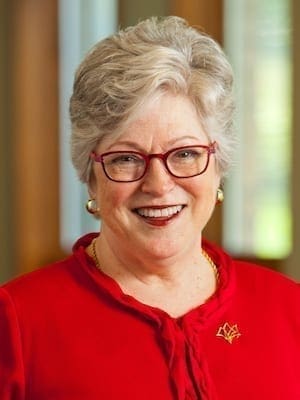I was in Myanmar last week with a group from Central Baptist Theological Seminary.
We visited churches, the Kachin Baptist Convention, a camp for internally displaced persons, two drug rehabilitation centers, two theological schools and the Fountain of Love Orphanage.
At each stop, a leader invited me to say words of encouragement and then offer prayer.
I encouraged children to study hard, to give thanks for their teachers and to make sure to take time to play.
They are joyful signs of hope despite their circumstances, and I give thanks that their natural ebullience has not been dampened.
More difficult to address, I encouraged drug addicts to have courage and trust that God is with them as they struggle toward health.
I encouraged internally displaced persons (IDPs) – a euphemism for those driven off their land by armed conflict or having their property confiscated – to not lose hope, to remember their lives have dignity even though they have lost so much.
It is a daunting task to offer encouragement that does not come across as glib or perfunctory.
What should one then pray? How do I voice the cry of the IDP, the orphan and the drug addict still in the throes of withdrawal?
I asked God not to forsake them, to keep pouring the supply of the Spirit into their hearts.
I prayed for the resilience that hope provides; I prayed for strength and courage for them as well as for those who care for them.
It is a testimony to the faith of these Baptist ministers, CBTS graduates, that they practice frequent and fervent prayer as a part of larger comprehensive care.
As I witnessed more trauma and despair, I found my prayers becoming more urgent, more insistent, indeed, more demanding as I petitioned God to bring justice to these so easily forgotten, at least by the government, which provides so little in terms of social services.
Yet, the churches have not forgotten them. Each of these ministries – the IDP camp, the orphanage and the rehab centers – are expressions of their holistic care.
The Kachin Baptist Convention helps support nine IDP camps, a costly endeavor, as there are hundreds of occupants in them.
U.S. churches could learn much from these churches as they engage the most distressing needs in their communities.
Compassion shapes these ministries, and they put considerable resources toward transformative initiatives.
The mission of the church in Myanmar and the U.S. is the same: to proclaim and live the gospel of Jesus Christ, in the power of the Spirit, to the glory of God.
Congregations that do this have a lasting impact for good.
Molly T. Marshall is president of Central Baptist Theological Seminary (CBTS) in Shawnee, Kansas. A version of this column first appeared on her blog, Trinitarian Soundings, and is used with permission. You can follow CBTS on Twitter @CBTSKansas.

